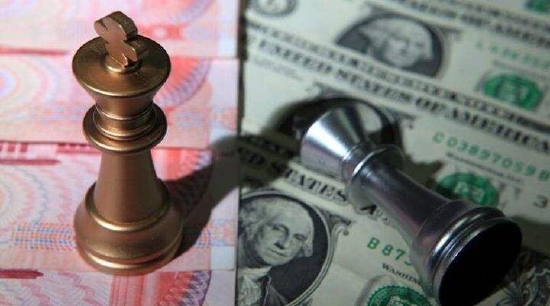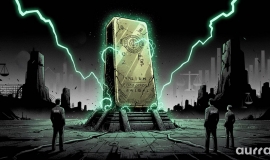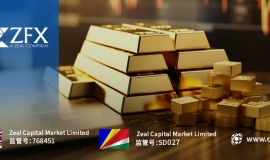Register now, make more friends, enjoy more functions, and let you play in the community easily.
You need Sign in Can be downloaded or viewed without an account?Register Now 
x
Recently, the RMB exchange rate has depreciated significantly8Since mid month, the overall value of the Chinese yuan against the US dollar has shown a downward trend; Especially8month29The value of the onshore Chinese yuan against the US dollar has fallen below6.9; Corresponding USD Index Breakthrough109, creating a near20A new high in the past year.
The significant depreciation of the RMB exchange rate has naturally aroused widespread concern and concern among the general public in China. Many people are pondering the reasons for the current depreciation of the RMB? Will the RMB exchange rate continue to depreciate significantly in the future, or will the RMB exchange rate break 7% by the end of this year? What impact will the depreciation of the RMB exchange rate have on the domestic economy, investment, and the lives of ordinary people? Wait a minute, these are all common attitudes exhibited by the entire society at present.

In fact, the recent depreciation of the RMB exchange rate is also a normal financial reflection, and it is not surprising: firstly,8The People's Bank of China in the month ofMLFandLPRThe interest rate has been lowered, resulting in a decrease in8month22In recent days, compared to the US dollar index, the depreciation momentum of the RMB exchange rate has become stronger, and the depreciation amplitude has been greater. And since the beginning of the year, China's central bank has conducted three "interest rate cuts" and successively introduced multiple credit support policies, making China's market liquidity quite abundant and credit levels relatively loose. This is inevitably due to the weakening of the RMB and the depreciation of the RMB exchange rate. Secondly, Powell sent a hawkish signal that the Federal Reserve has been raising interest rates, and expectations of rate hikes will continue to rise; Especially last Friday, Powell issued a strong hawkish signal at the Jackson Hole Global Central Bank Annual Meeting, stating that the Federal Reserve needs to be more resilient in fighting inflation, which will inevitably exacerbate the expectation of global currency depreciation, and of course, the renminbi cannot be spared. And other countries' currencies have also suffered, such as the recent devaluation pressure on the pound, euro, and yen. In this way, two scenarios have naturally emerged: loose monetary policy in China and tight monetary policy in the United States. The result of this loosening and tightening is an increase in the upside down of the interest rate difference between the Chinese yuan and the US dollar, resulting in a natural decline in the Chinese yuan exchange rate. Thirdly, from the perspective of international balance of payments, banks have reduced the settlement of foreign exchange on behalf of customers and increased the sales of foreign exchange on behalf of customers. This has led to an increase in market demand for the US dollar and a decrease in demand for the Chinese yuan, which is also in line with the financial logic of "a strong US dollar and a devaluation of the Chinese yuan". Fourthly, there is another objective factor, which is the repeated domestic epidemic and the continued downward pressure on the economy. Financial data, consumption data, and investment data have not performed as expected, which has also increased the pressure on the fluctuation of the RMB exchange rate.
So, will there be a possibility of sustained significant depreciation of the RMB exchange rate in the future? To objectively and accurately judge this issue, we should think from three levels:
Firstly, it depends on the magnitude and duration of the Federal Reserve's interest rate hikes. If significant interest rate hikes continue, there is a possibility of a significant depreciation of the RMB.But currently, although Federal Reserve officials are strongly 'hawking' in raising interest rates, speaking and doing are two different things. At present, there is a possibility that the Federal Reserve will continue to raise interest rates significantly, as it is far from its established2%There is still a significant gap in the inflation control target of China; But if interest rates continue to rise, the US economy will definitely not be able to bear it. Currently, there are certain signs of recession in the US economy, with economic growth and employment recovery falling short of expectations. According to the information just disclosed,2022year2Quarter, US actualGDPNegative annualized month on month growth0.6%If interest rates continue to rise significantly, there is a risk that the gains made by the US economy through previous easing measures will be lost. So, at present, the Federal Reserve's interest rate hike should be almost at an end. Therefore, the risk of sustained and significant depreciation of the RMB is relatively small. The domestic public and enterprises can calmly face the depreciation of the RMB exchange rate, and must increase their confidence in the RMB exchange rate.
Secondly, it depends on the domestic monetary policy environment. If China's central bank's monetary policy continues to lower interest rates or deposit reserve ratio, there is a possibility of sustained significant depreciation of the RMB exchange rate.At present, the central bank has stated to maintain a stable monetary policy and not engage in flooding. Ongoing2022At the China International Trade in Services Fair in, central bank officials publicly stated: "Monetary policy should further regulate across cycles, maintain stable and moderate growth of monetary and credit, maintain reasonable and abundant liquidity, and assist economic development. At the same time, they should closely monitor the inflation trend at home and abroad, avoid flooding, do not exceed the issuance of currency, and maintain basic stability of price levels, This is actually a "reassurance" for the general public and enterprises. It indicates that the central bank's monetary policy remains basically stable and will not continue to flood the market. There is no monetary policy environment where the RMB exchange rate continues to depreciate. This should be fully believed by domestic enterprises and the public, and should not be blindly worried.
Once again, it depends on the domestic economic development environment. If the economic situation continues to deteriorate and the basic economic situation is unstable, there is a possibility of a sustained significant depreciation of the RMB.However, the reality is that despite the recent announcement7Monthly macroeconomic data, such asGDPTotal retail sales of consumer goodsPMI、PPIThe indicators were lower than expected, but the decline was narrow, showing a weak recovery overall. In addition, the central government has recently introduced measures to support economic development19Major economic policy measures, major infrastructure projects related to the national economy and people's livelihood, and the initiation of domestic demand plans are being implemented. It is expected that8Monthly data may be better than7Monthly data, to9The month or fourth quarter will show good momentum, and China's economic recovery will also achieve significant results, which will play an important role in stabilizing the overall economic situation and ensuring the achievement of the economic growth goals set in this year's two sessions. Therefore, all enterprises and people in the country do not have to worry excessively about the current depreciation of the RMB exchange rate. Even if the RMB exchange rate is fluctuating in the future, the central bank has many intervention measures. Moreover, it should be noted that moderate two-way fluctuations in the RMB exchange rate are a normal phenomenon and will not have a significant impact on the social economy and people's lives; Especially, the current moderate depreciation of the RMB exchange rate is also conducive to the recovery of export enterprises' business performance.
(Introduction to the author of this article: Famous financial commentator and independent economist) |


